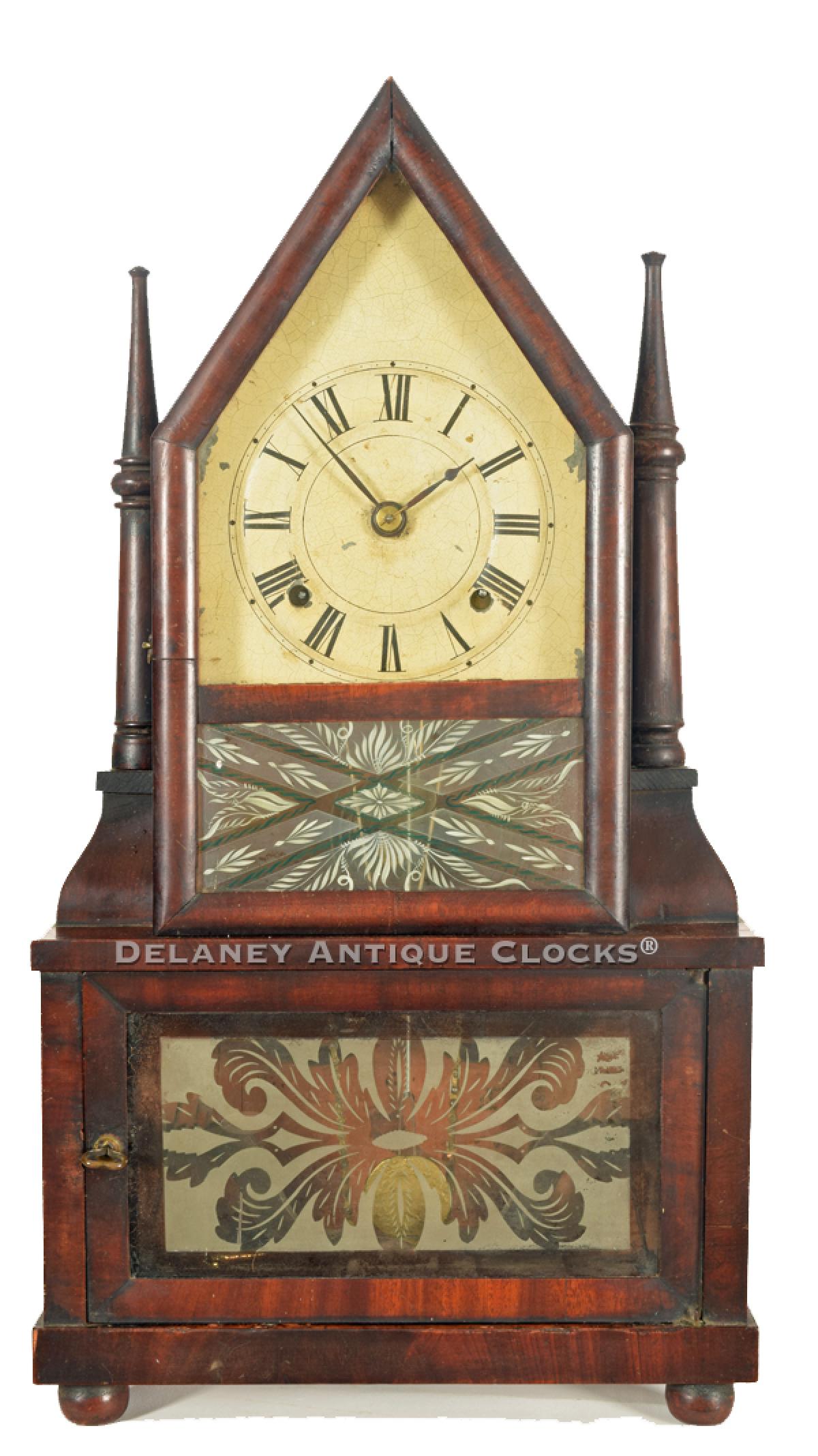Birge & Fuller of Bristol, Connecticut single candlestick mantel clock. A wagon spring powered steeple on steeple. AAA-26
Birge & Fuller of Bristol, Connecticut, single candlestick mantel clock. A wagon spring-powered steeple-on-steeple. AAA-26.
This is a very good example of a 30-hour wagon spring-powered steeple on steeple clock, which was manufactured by the firm of Birge & Fuller in Bristol, Connecticut. This is a highly collectible example because it is powered with a wagon spring mechanism and housed in a seldom-seen single candlestick case.
This is an excellent example. Today, this unusual model is called a single candlestick steeple-on-steeple. The name reflects the single wooden candlestick-shaped wooden spires on either side of the case. Interestingly, the form that features four candle sticks called the double candlestick model, is much easier to locate in the marketplace. This case is constructed in mahogany and mahogany veneers. It retains an older finish. Even still, one can view the variations of grain patterns and wood color exhibited in the veneer. The case is raised on four turned compressed ball feet. Two doors access the interior of the case. The lower door is fitted with frosted glass. The pattern allows you to view the motion of the brass-faced pendulum bob when the clock is operating. The upper door is fitted with a painted tablet, and a clear piece of glass is put in front of the dial. All three glass panels are original to this clock. The decorated tablets are in excellent original condition. The dial is painted on tin and features a Roman numeral formatted time ring.
The movement in this clock is brass. It is quite typical because it is designed to run for thirty hours on a full wind and strike each hour on a wire gong mounted inside the case. It differs from most other 30-hour movement examples in how it is powered. (This is a Joseph Ives Patent.) A simple coil spring is the most common method of powering a Connecticut clock. When one winds this clock, you are wrapping a cord around the winding drum, which in turn wraps around hoists and pull on cast iron levers that tension the cast iron leaf springs. These are mounted or secured to the bottom of the case. The hoists are designed to help equalize the power put into the movement over the period of the wind. This is an ingenious idea and an improvement in the clock's ability to keep more accurate time. Wagon spring-powered models incorporate a number of cast iron parts, including a leaf spring, levers, and hoists or pulleys. All of this would have been an added cost to the clockmaker and would have made this clock more expensive than the standard coil spring-powered model. As a result, this clock probably didn't sell very well. Today, because of the limited number of clocks made and the survivability of those that did, it is becoming increasingly difficult to find good examples such as this one.
This clock measured approximately 22 inches tall by approximately 11.75 inches wide and was made circa 1846.
Inventory number AAA-26.
John Birge (1785 -1862) and Thomas Franklin Fuller (1798 - 1848) shared a successful partnership in Bristol Connecticut from 1844 through 1848. They made many steeple clocks with a large variation of movements. This firm is probably best known for making steeple on steeple clocks powered by wagon spring movements.












